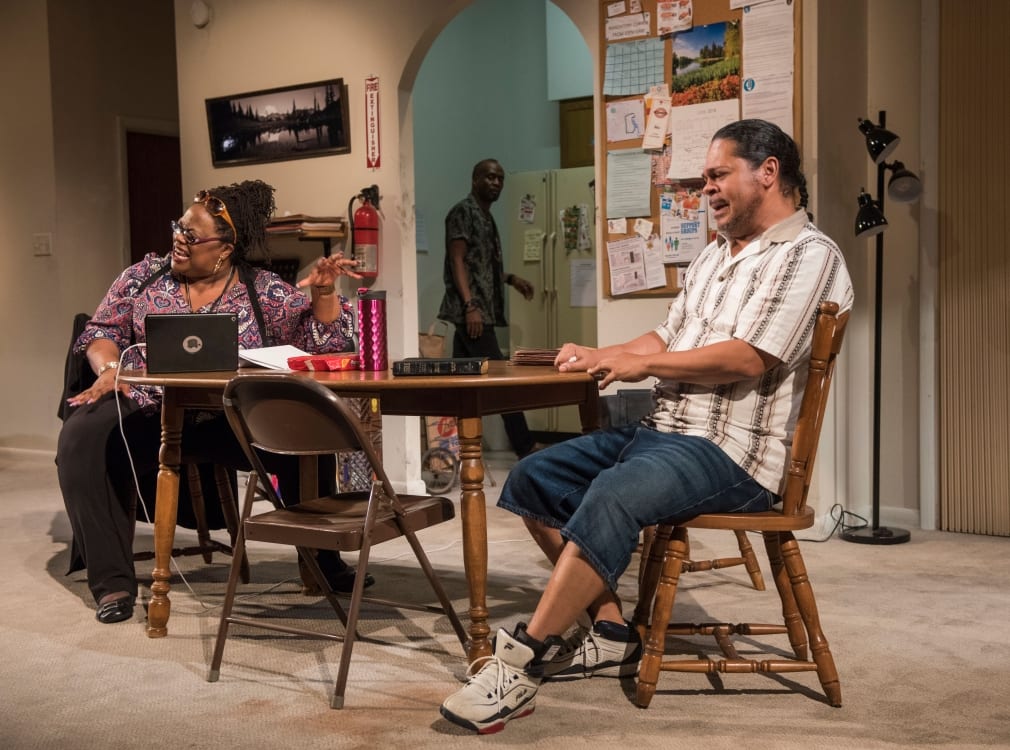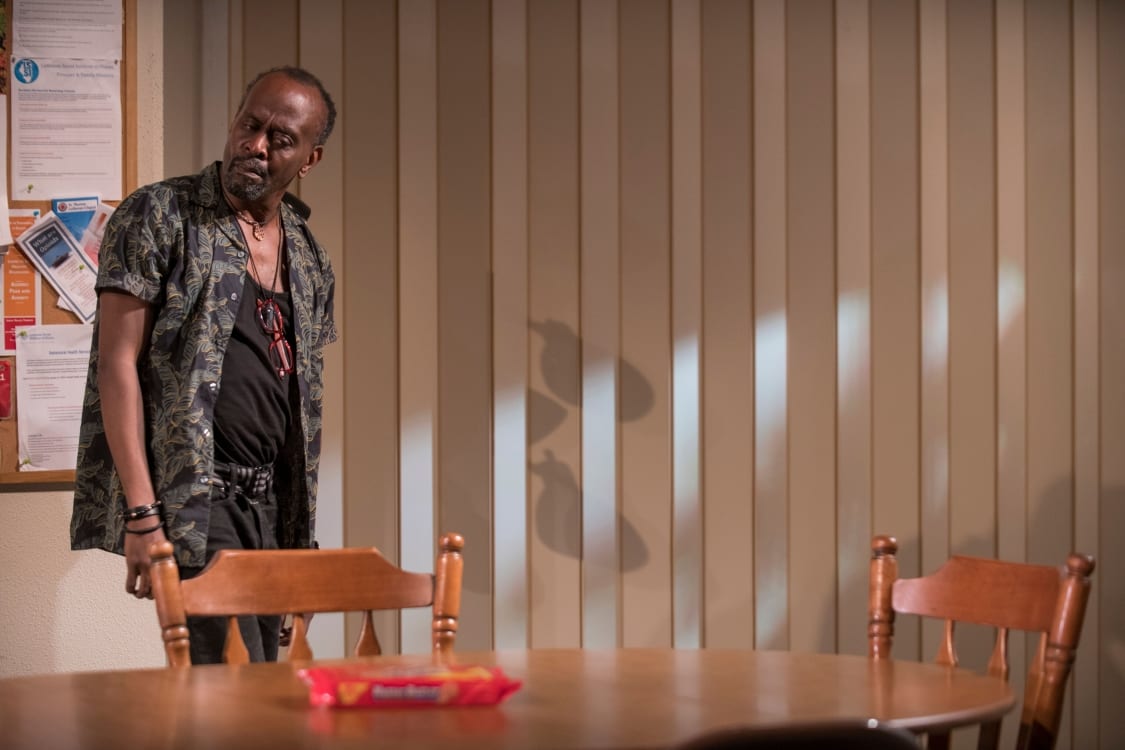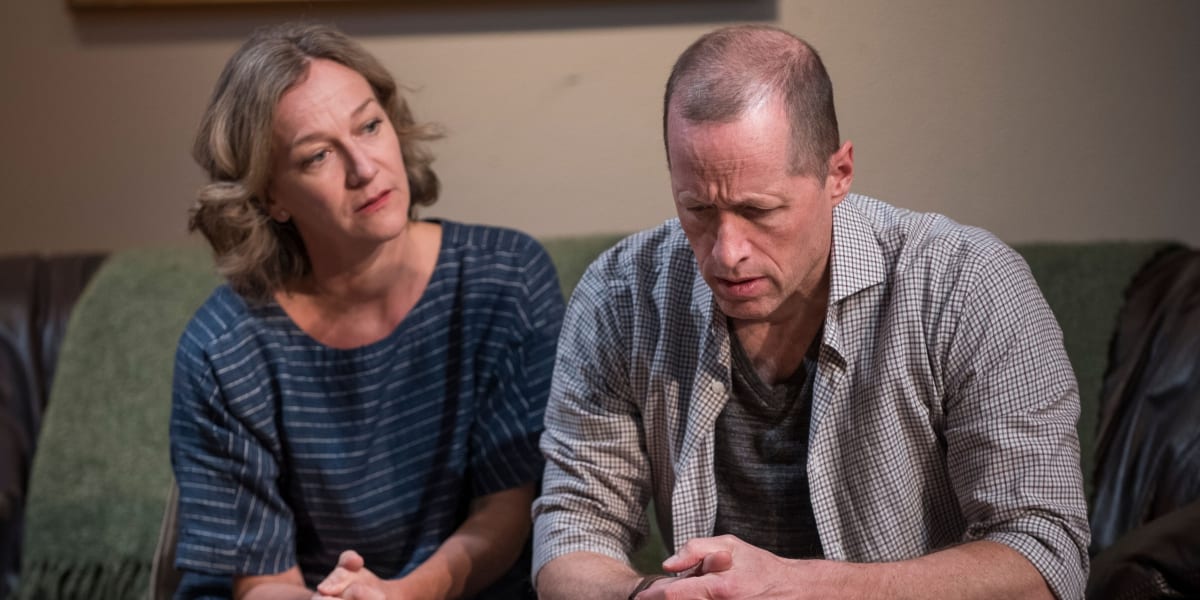Was this timely? Was it necessary? Was it important? These are the questions I’m contemplating after watching this play.
It was moving certainly. Thought-provoking for sure. It opened up a different part of our modern conversation about abuse, victims and consent. About predators and perpetrators. About humans and monsters.
Downstate opens with a victim of child abuse confronting his abuser. Even from the start, the statuses of the two is such that the sympathy dynamic is more balanced than you would expect in such a scenario. The victim is a little too victim. His wife deeply unsympathetic. The perpetrator in a wheelchair, ashamed, humbled and sorry.
In production terms I can’t fault this. The central performances of Dee (K Todd Freeman) & Fred (Francis Guinan) are superb. Both exude a damaged humanity. They are broken men. Broken by their guilt, broken by the response to their guilt, broken by the restrictions of the life they are now forced to live. Both actors engender sympathy entirely and while Freeman does so without pandering, Guinan has less to do on that score as he is so clearly written for sympathy as a “gee whizz” almost innocent.
Sympathy or at least a sense of shared humanity is what this play aims to make us feel. And rightly so. The more we demonise sex offenders the less we understand the causes and the worse it is for everyone involved. My concern about this play comes from the fact that the essential humanising of the perpetrators occasionally comes at the expense of their victims.
We only meet Fred’s victims. Dee’s relationship is portrayed as basically a love affair. His victim seemingly writing to him until his untimely death. Gio (Glenn Davis) – convinces himself without challenge that his is “just” a case of statutory rape. Even with Felix (Eddie Torres) we are shown him mourning the loss of relationship with the daughter he abused – not the ongoing effect of the abuse on her.
It concerned me that Andy (Tim Hopper) was written as downtrodden and whining, and presented as lying about at least one aspect of his abuse. It concerned me that his wife was written as nagging and unconcerned.
There is a much to be said about the fact that sexual abusers are still humans whose humanity it is society’s role to protect and nurture. There is much to be said about the fact that victims don’t fit the angelic and heroic mould we would like to cast them in. Downstate touches on both those themes but, for me, it didn’t quite do so deftly enough.
In this moment where simply calling out sexual abuse is being called a witch-hunt, this is a brave play. But in its desire to understand the humanity of the perpetrators it cuts a few too many corners with the victims, and I’m not sure now is the moment to denigrate those voices.

